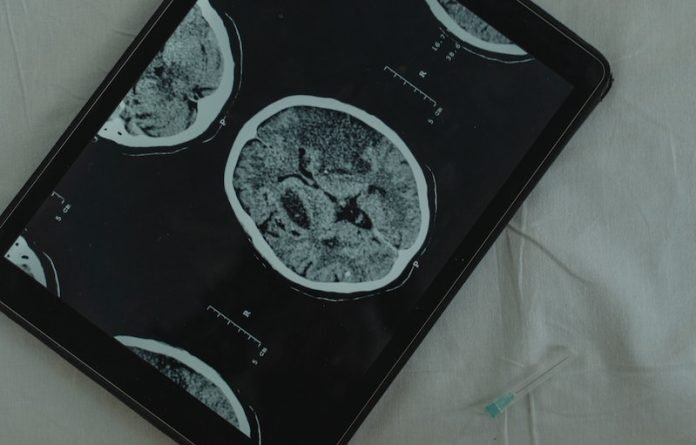
The human brain holds many clues about a person’s long-term health.
In fact, research shows that a person’s brain age is a more useful and accurate predictor of health risks and future disease than their birthdate.
In a study from the University of Southern California, scientists developed a new artificial intelligence (AI) model that analyzes magnetic resonance imaging (MRI) brain scans.
It could be used to accurately capture cognitive decline linked to neurodegenerative diseases like Alzheimer’s much earlier than previous methods.
Brain aging is considered a reliable biomarker for neurodegenerative disease risk. Such risk increases when a person’s brain exhibits features that appear “older” than expected for someone of that person’s age.
In the study, the team used the deep learning capability of the novel AI model to analyze the scans, and they detected subtle brain anatomy markers that are otherwise very difficult to detect and that correlate with cognitive decline.
The team collated the brain MRIs of 4,681 cognitively normal participants, some of whom went on to develop cognitive decline or Alzheimer’s disease later in life.
Using these data, they created an AI model called a neural network to predict participants’ ages from their brain MRIs.
First, the researchers trained the network to produce detailed anatomic brain maps that reveal subject-specific patterns of aging.
They then compared the perceived (biological) brain ages with the actual (chronological) ages of study participants. The greater the difference between the two, the worse the participants’ cognitive scores, which reflect Alzheimer’s risk.
The results show that the model can predict the true (chronological) ages of cognitively normal participants with an average absolute error of 2.3 years.
The new model also showed sex-specific differences in how aging varies across brain regions. Certain parts of the brain age faster in males than in females, and vice versa.
Males, who are at higher risk of motor impairment due to Parkinson’s disease, experience faster aging in the brain’s motor cortex, an area responsible for motor function.
Findings also show that, among females, typical aging may be relatively slower in the right hemisphere of the brain.
The team says the earlier doctors can identify people at high risk for Alzheimer’s disease, the earlier clinicians can intervene with treatment options, monitoring, and disease management.
What makes AI especially powerful is its ability to pick up on subtle and complex features of aging that other methods cannot and that are key in identifying a person’s risk many years before they develop the condition.
If you care about Alzheimer’s, please read studies about the root cause of Alzheimer’s disease, and new non-drug treatment could help prevent Alzheimer’s.
If you care about brain health, please read studies about how the Mediterranean diet could protect your brain health, and Strawberries could help prevent Alzheimer’s disease.
The study was conducted by Andrei Irimia et al and published in Proceedings of the National Academy of Sciences.
Copyright © 2023 Knowridge Science Report. All rights reserved.



